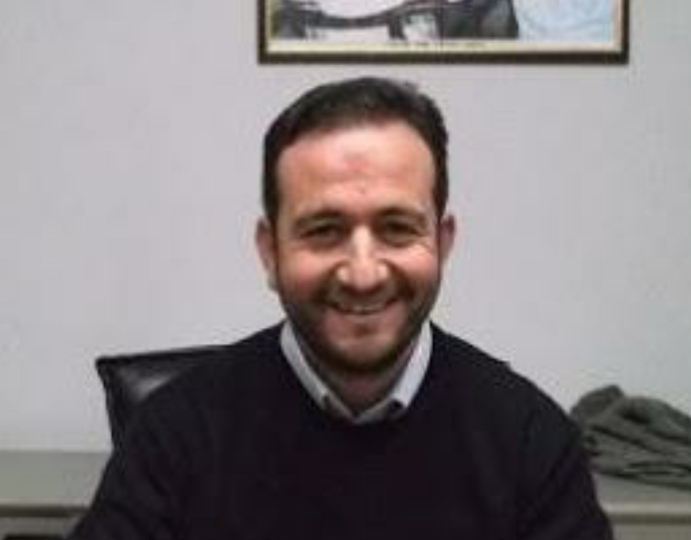Interview with Marcello Antonazzo (president of the Lecce OPI): “Nurses increasingly protagonists of the change in health care”.
They continue interviews by AssoCareNews.it to the characters of yesterday and today of Italian Nursing. This time we decided to give voice to our friend and colleague Marcello Antonazzo, President ofOrder of Nursing Professions of Lecce to talk not only about Puglia and Salento, but about the Italian nation at the time of Covid and the necessary and essential relaunch of the profession in the country.
Ad Antonazzo, like its predecessors, we asked 6 specific questions. Let’s see what and how he answered.
How do you see the nurse in 10 years?
I see an increasingly combative, competent and responsible Nurse who must realize that only by inspiring and applying these principles will he be able to affirm our profession and be the protagonist of assistance and health of citizens.
The nurse of tomorrow inevitably passes from nursing today. What do you think are the essential points to be addressed?
The essential points are: training, research, nursing management, employment contract, staffing and infungibility of the profession.
I would like to emphasize the attention, in particular, on the following issues:
- The contractual issue is of fundamental importance because if the competence and responsibility in national collective labor agreements is not recognized, it is more difficult to expect nurses to embrace the company mission.
- Another aspect is the immediate adjustment of the staffing resources with the updating of the university admissions programming.
- In Italy there are 53,000 nurses missing.
- While the specializations would allow a better development of low and high intensity care facilities allowing a greater connection between hospital and territory, reducing waiting lists and allowing to meet a greater number of citizens’ needs.
- Finally, overcoming the constraint of exclusivity of a professional relationship.
In your opinion, how could the relationship between nursing image and citizenship be improved?
The nursing profession must make a pact with the citizen. It is necessary to continuously promote the image of the nurse starting from one’s own workplace, demonstrating to be a trained professional both from a technical and relational point of view.
Correctly communicating who we are and what we represent in everyday reality in the eyes of citizens is the best response to positions that hinder change.
Communication campaigns are fundamental, but also the setting up of stands to get together with citizens, telling who the nurse is today and doing health education.
Nursing protagonists in the ward but not only: what will be the role of scientific societies in the development of nursing?
The role of professional scientific societies, with respect to a constantly changing reality, is to support professionals in improving their work by bringing back the many good practices existing within the Health system.
Today, according to the law n.24 / 2017-Gelli, scientific societies actively participate in the implementation of the guidelines that represent the fulcrum of professional responsibility, deal with answering clinical questions, and still offer strategies for sharing among professionals. specialist choices and decisions through own objectives represented by scientific evidence.
Scientific societies have a fundamental role towards society or rather the public mentality by promoting trust in science and the profession.
Scientific societies offer added value in daily clinical practice, in multidisciplinarity but above all in the relationship with the assisted person by offering quality care.
Nursing education suffers from a lack of resources. How much do you think it affects the profession and professionals?
Training must be understood as a strategic factor necessary for achieving the objectives set out in a company planning.
The guarantee of quality training is a collective responsibility that primarily involves the academic community, the national health system in all its articulations, the scientific community and the representative bodies of health professionals.
Therefore, the resources in university and CME training are of fundamental importance as through training you can maintain your skills and be a stimulus to help the professional grow, reduce clinical risk and guarantee citizens ever better levels of care.
There is no professional growth without training.
Some managements seem to prefer nurses from large city hospitals: what recipe to prevent there being peripheries in the profession?
The coronavirus pandemic has taught us that not only large hospitals must exist, on the contrary, we must start right from the territory to intercept citizens suffering from chronic-degenerative diseases and possibly treat them at home.
All this is reflected in the Health Pact 2019-2021 in which it is envisaged that, alongside general practitioners, pediatricians of free choice and outpatient specialists and pharmacists, there will be family / community nursing assistance, to guarantee complete integrated care of people.
The proof that the offer of services is located outside acute hospitals and affects individual professionals and outpatient, residential and semi-residential facilities was given with the “Relaunch Decree” law 17 July 2020, n. 77, which converts, with amendments, the decree law 19 May 2020, n. 34, containing urgent measures on health, support for work and the economy, as well as social policies, connected to the epidemiological emergency from COVID-19.
With this standard comes the figure of the IFC (family / community nurses) in the ratio of 8 per 50 thousand inhabitants: 9,600 even if at full capacity, according to the Federation at least 20 thousand will be needed.
Therefore, the objectives of future health care must go in the direction of greater effectiveness of health promotion and prevention actions, as well as the improvement and greater appropriateness of the methods of taking care of health needs, with particular attention to territorial assistance and integration between hospitals and the local area, precisely to promote equity for all citizens in accessing health services.
Thanks president, as always it was very clear.
To follow the other interviews by AssoCareNews.it: LINK.
–


